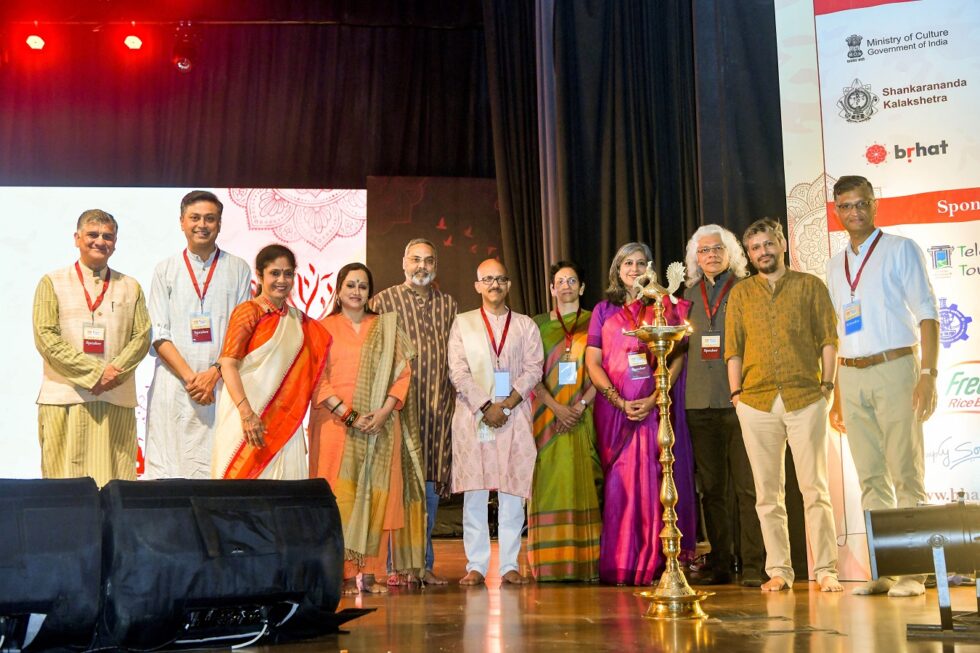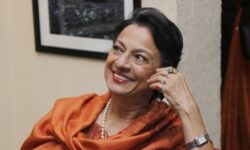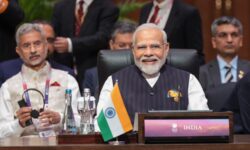
HYDERABAD:
Beyond working towards stronger infrastructure, the nation must promote overall development and empowerment that can enable Bharat to regain its status as an energetic Rajasic entity, a heritage-centric event noted today.
Beautification of sacred temples, for instance, in ways that turn them into pilgrim destinations can work well with ‘Political Hindutva’, but such measures may not necessarily guarantee a quest for spiritual and societal uplift among people, according to speakers at ‘Bharata Uvaca: A Civilisation Speaks’, organised by Shankarananda Kalakshetra ‘Natyarambha’ in the city.
“Don’t dilute the core in the name of conveying the message to a broader audience,” said engineer-turned-litigator J. Sai Deepak in his presentation that opened a series of eleven TED-style talks interspersed by three classical performances at the festival under the aegis of ‘Azadi ka Amrit Mahotsav’ with the support of the Union Ministry of Culture.
Highlighting the need for reinstating the values of civilizational roots, Sai Deepak said such a journey should go alongside the administration’s efforts to make the country a global superpower. “While ‘India’ is a narrow take on the concept of the nation, ‘Bharat’ connotes an expansive of ocean comprising a whole lot of its facets,” he added in the 20-minute speech on ‘India That Is Bharat’.
Taking cue from a 12-minute Vedic chanting that marked the start of the proceedings, renowned dancer-choreographer Dr Ananda Shankar Jayant, who conceived and curated Bharata Uvaca, said the subcontinent’s history had seen its civilization “often roaring, sometimes whispering and always speaking”. “We are entering the last quarter the country’s first century of Independence, this festival will be annual,” she added, emphasizing the need for people taking pride and ownership of the culture for Bharat to rise as a Vishwaguru that can lead the world together.
Activist-commentator Anuraag Saxena, while decrying a centuries-old “institutionalized kleptomania” that saw foreign powers smuggling out the country’s invaluable heritage objects, expressed optimism over a recent reverse to the trend where no less than 500 such artifacts have returned to India during the past eight years. Noting that public outrage had seldom resulted in action in India, the speaker, in his talk on ‘Kartavya Bhava — From Whining to Winning’, called upon people to focus on “reshaping instead of reacting”.
Foreign affairs expert Gautam Chikermane, speaking on ‘India: The Rise of a Rajasic Nation’, said the country’s current dependence ratio at 47 per cent that is working in ways that is adding to the 15-64 age-group, lights up its prospects of prosperity in the coming years. “In 1987, half our population belonged to class of ‘extreme poor’, while it is close to zero today,” he pointed out. “A rise in the strength of our domestic knowledge system bodes well for the nation.”
Political analyst Shantanu Gupta, while elaborating on ‘The Ramayana School’, made his presentation particularly interactive through modern apps that enabled the audience to digitally answer questions and raise their knowledge about the Valmiki epic. Art historian Chitra Madhavan, on ‘Temples — Treasure Troves of a Civilisation’, essayed how the places of worships also functioned as centres of art, culture and education.
Personal finance writer Monika Halan, on ‘Reclaiming the Abundance of Artha’, stressed the need for reclaiming the ancient wisdom that wealth is a definite means to fuel culture and civilization. Exhorting the delegates to give up on film-fed tropes that portrayed money as invariably ill-gotten and evil, she gave tips on how prudent use of financial resources can work well for society.
While a performance-talk by Anupama Kylash on ‘Ista Deva: An Intimate Bond’ wound up the forenoon sessions at Shilpakalavedika in HITEC City, the post-lunch session began with a violin symphony ‘Strings in Unison’ by the Hyderabad based Arabhi group. This was followed by three talks: ‘Indian Pilgrimage through Maps’ by art collector and philanthropist Prshant K. Lahoti, ‘Dharmic Education for an AI World’ by VidyaKshetra founder Muneet Diman and ‘Warp and Weft of India’ by media personality and author Shefali Vaidya.
Water warrior Kalpana Ramesh spoke on ‘Building the Water Chakra’, followed by television anchor Anand Narasimhan’s talk on ‘Civilisational Roots Integral to the Concept of Nationhood’.
The crescendo of Bharata Uvaca was the critically-acclaimed ‘Tales from the Bull and the Tiger’, a Shankarananda Kalakshetra dance production choreographed by Dr Ananda, also a motivational speaker and writer.
Shankarananda Kalakshetra, now into its 45th year, has also been a pioneer of the arts in the digital space by creating in 2017 a first-of-its-kind ‘Natyarambha’ that has a wide following among students and gurus across the world.




